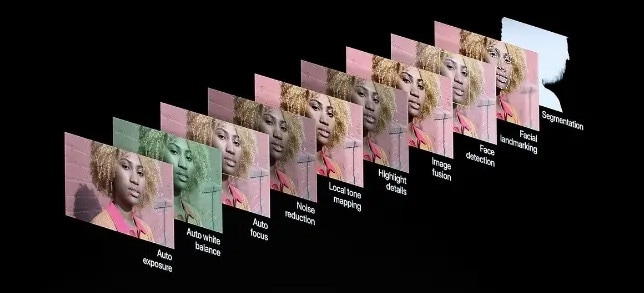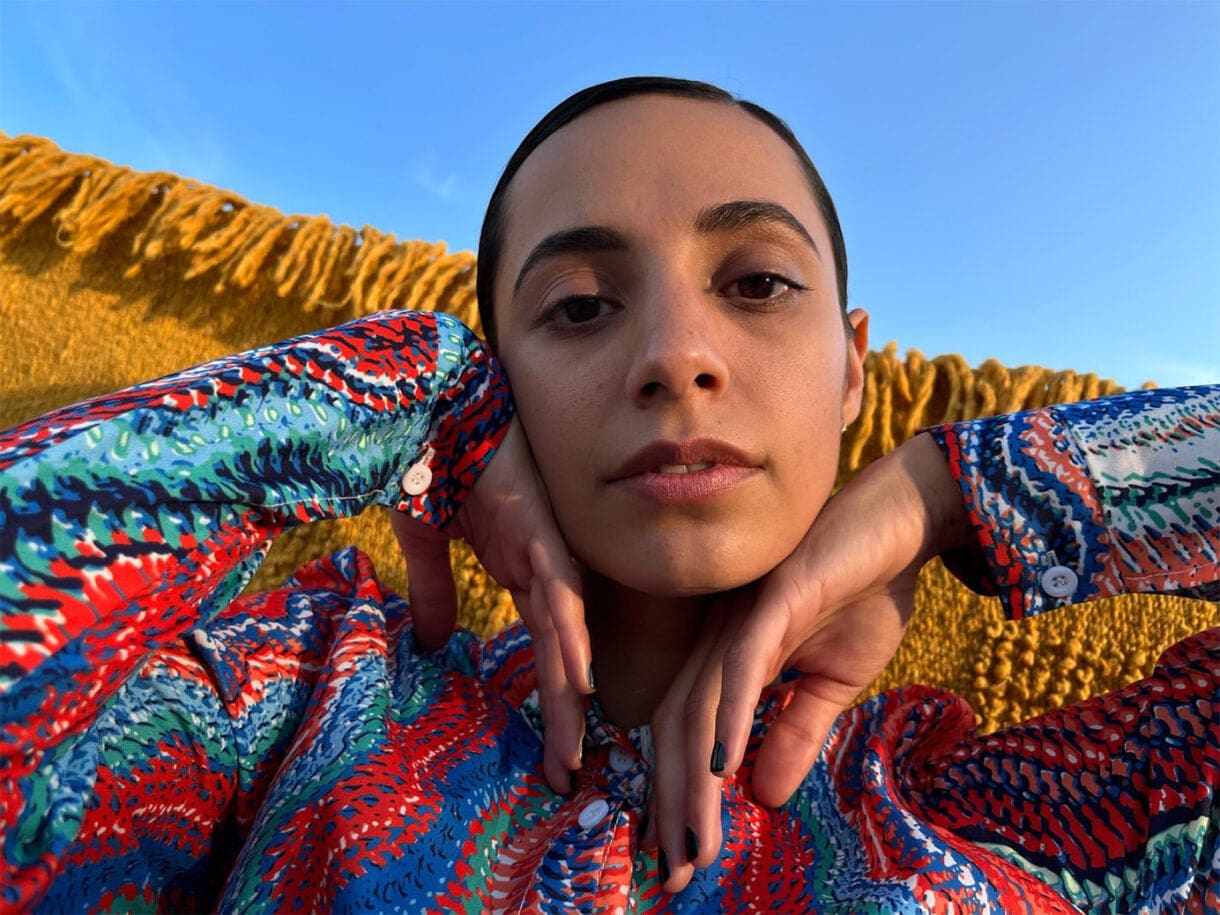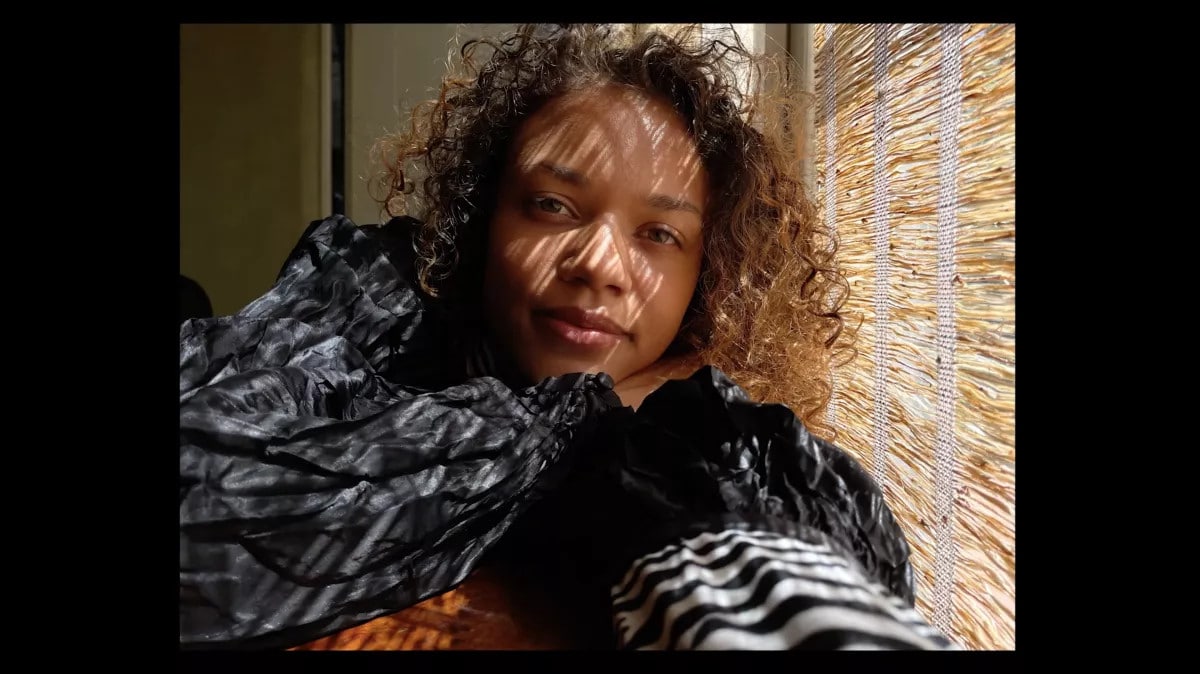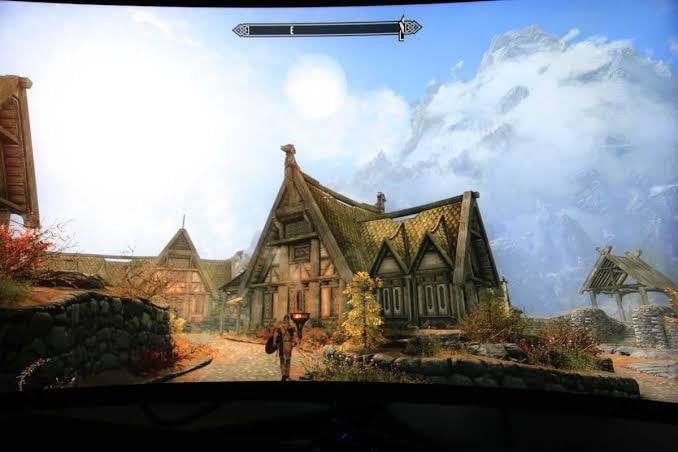![[New] The Evolution of Dynamic Range Control in Digital Photography for 2024](https://thmb.techidaily.com/6b74a794374950c8c7d33f01e283b8595a0e02efb75345cb412052a7193f6b01.jpg)
[New] The Evolution of Dynamic Range Control in Digital Photography for 2024

The Evolution of Dynamic Range Control in Digital Photography
Computational photography has become increasingly popular in recent years, especially as smartphone cameras have improved in quality and stabilized image sensors have become more affordable for the average consumer.

Over time, we’ve seen the introduction of High Dynamic Range (HDR) imaging modes that use software algorithms to produce photographs with an extended range of brightness values, with smart HDR 3 and smart HDR 4 coming to market just this year.
But what are HDR modes, exactly? How do they work? In this article, we’ll explain exactly how these new modes work and how they can be used to make your photographs look better than ever before.
Disclaimer: This post includes affiliate links
If you click on a link and make a purchase, I may receive a commission at no extra cost to you.
What is the HDR Feature for iPhone Photos?
HDR is a feature that allows you to take better photos in low-light situations and at night. It works by taking multiple pictures at different exposures and then combining them into one photo. This results in a photo with more detail and less noise.
Because of computational photography, the iPhone automatically adjusts color, sunlight, contrast, skin, saturation, and background blur.
The iPhone has had this feature for a few years now and it keeps getting better with every new release.
Camera Comparison: Different Versions of Smart HDR Vs Previous HDR in iPhone
When you compare the latest Smart HDR technology used in iPhone to the prior HDR, Smart HDR wins in every aspect. From giving your photos better color to enhancing their highlights and shadow details. Besides, Smart HDR is not supported on older iPhone models that lack faster sensors, zero shutter lag, and other developments.
The table below shows different HDR and their details;
| Smart HDR 4 | Smart HDR 3 | Smart HDR | Auto HDR | |
|---|---|---|---|---|
| First Appeared | 2022 | 2021 | 2018 | 2017 |
| Available on | iPhone 12 line, iPhone 13 line | iPhone 11 lineup and iPhone 12 lineup | iPhone Xs and later | iPhone X and newer |
| Photo types it works with | smart HDR works with Portrait and Portrait Lighting modes, panoramic shots, bursts, frames in Live Photos and action shots | single high dynamic range (HDR) image |
Smart HDR 4 (iPhone 13)
Apple’s computational photography system smart HDR 4 is available on iPhone 13.
With this new technology, your pictures will be more detailed and vivid than ever before.
They have richer colors, better lighting, good contrast, and an improved dynamic range that make your images look realistic.
In smart HDR 4 Apple offers improved night mode quality, end-to-end HDR video, sensor-shift OIS expanded, Macro mode, cinematic mode, etc.
For example, a picture of the sun may show more detail in the cloudless sky while simultaneously preserving details in the shadows of buildings that would otherwise be too dark to see.

Smart HDR 3 (iPhone 12)
Apple’s computational photography system “smart HDR 3” is available on iPhone 12. The feature has been upgraded with a new algorithm to create more natural-looking images by removing some of the artifacts that have been found in previous iterations of the technology.
- The beautiful photographs taken on iPhones have to do with the quality of its HDR and Deep Fusion features.
- In HDR 3 we can find a wider aperture and improved low-light performance. HDR 3’s Portrait and Night modes can be combined to create stunning shallow depth-of-field images.
- Video captured with Dolby Vision will have more detail in the highlights and shadows, as well as a smoother gradation in color.
In this, we can get A preview of the final image shown as you capture an image and can be used to remove distracting elements from a scene before taking a photo or video.

Smart HDR (iPhone 11)
Smart HDR is embedded in the iPhone 11 and iPhone 11 Pro that promises to bring a better dynamic range to your photos. With Smart HDR features, your camera will take buffer frames,
- where you’ll need to tap the shutter before and after, that capture images in different exposures so that your iPhone will capture everything, even highlights, shadows, and background objects.
- Newer models of iPhone, equipped with Apple’s A12 Bionic chip, have Smart HDR, which automatically adjusts the dynamic range by employing AI technology.
- If you’re looking to use HDR for any type of photo, use your photos with a significant amount of high contrast with dramatic, meaningful light or shadow contrast and be sure to keep your camera as steady as possible to get the best results.
- Smart HDR can vastly improve your photos without you doing anything different.
- It seems to use both an image sensor and a depth map from its TrueDepth camera setup.

Auto HDR (iPhone X)
Auto HDR is a feature in the camera of the iPhone X series that takes multiple pictures at different exposures and then combines them to create one well-exposed photo. One of the things that make the iPhone camera so great is computational photography.
This feature is designed to improve the quality of your photos by automatically applying a high dynamic range (HDR) effect. Here are five benefits of using Auto HDR on your iPhone
- You can avoid editing your photos in post-processing, which saves time and reduces the risk of errors;
- Auto HDR applies different levels of saturation and contrast depending on what you’re photographing, giving you more accurate colors;
- It uses face detection to properly expose portraits; -
- It improves details in low light situations; and
- It’s enabled by default in iOS 11 so you don’t have to do anything.

Should you Lookout for the HDR feature on iPhone 14?
The rumor mill is generating leaks about a possible new 48 MP main sensor for the next-generation iPhone 14 Pro camera. Some features of this camera may include more-realistic colors and better low-light performance in addition to all of the other specs we have been hearing about recently.
If these rumors prove true, it’s possible that Apple will introduce an even more robust and efficient HDR system than what we see on iPhones today.
- iPhone 14 camera will come with a 48 Megapixel sensor. It is rumored that there would be more-realistic colors and better low light performance too.
- 8K video recording is a simple resolution bump for the Pro models. For example, if you record a 4K video at 30 frames per second (fps), then your videos playback at 15 fps when played back on an iPhone.
- The selfie cameras of the iPhone 14 models will also receive a major upgrade. The new front-facing sensors are said to offer three times as many pixels. These pixels should help keep faces from looking distorted or pixilated while maintaining natural skin tones.
Final words
Computational photography is a technique that takes advantage of the impressive processing power of modern smartphones to create stunning and persuasive pictures. The most common examples of this are the Auto HDR and Smart HDR modes found on many iPhones.
These modes use computational photography to automatically improve the dynamic range and color of your photos, making them look much better than they would with traditional camera techniques.
Auto HDR will make sure both shadows and highlights are in focus, while Smart HDR 3 or 4 take it one step further by creating a high-dynamic-range image from three or four exposures.
Free Download For Win 7 or later(64-bit)
Free Download For macOS 10.14 or later
What is the HDR Feature for iPhone Photos?
HDR is a feature that allows you to take better photos in low-light situations and at night. It works by taking multiple pictures at different exposures and then combining them into one photo. This results in a photo with more detail and less noise.
Because of computational photography, the iPhone automatically adjusts color, sunlight, contrast, skin, saturation, and background blur.
The iPhone has had this feature for a few years now and it keeps getting better with every new release.
Camera Comparison: Different Versions of Smart HDR Vs Previous HDR in iPhone
When you compare the latest Smart HDR technology used in iPhone to the prior HDR, Smart HDR wins in every aspect. From giving your photos better color to enhancing their highlights and shadow details. Besides, Smart HDR is not supported on older iPhone models that lack faster sensors, zero shutter lag, and other developments.
The table below shows different HDR and their details;
| Smart HDR 4 | Smart HDR 3 | Smart HDR | Auto HDR | |
|---|---|---|---|---|
| First Appeared | 2022 | 2021 | 2018 | 2017 |
| Available on | iPhone 12 line, iPhone 13 line | iPhone 11 lineup and iPhone 12 lineup | iPhone Xs and later | iPhone X and newer |
| Photo types it works with | smart HDR works with Portrait and Portrait Lighting modes, panoramic shots, bursts, frames in Live Photos and action shots | single high dynamic range (HDR) image |
Smart HDR 4 (iPhone 13)
Apple’s computational photography system smart HDR 4 is available on iPhone 13.
With this new technology, your pictures will be more detailed and vivid than ever before.
They have richer colors, better lighting, good contrast, and an improved dynamic range that make your images look realistic.
In smart HDR 4 Apple offers improved night mode quality, end-to-end HDR video, sensor-shift OIS expanded, Macro mode, cinematic mode, etc.
For example, a picture of the sun may show more detail in the cloudless sky while simultaneously preserving details in the shadows of buildings that would otherwise be too dark to see.

Smart HDR 3 (iPhone 12)
Apple’s computational photography system “smart HDR 3” is available on iPhone 12. The feature has been upgraded with a new algorithm to create more natural-looking images by removing some of the artifacts that have been found in previous iterations of the technology.
- The beautiful photographs taken on iPhones have to do with the quality of its HDR and Deep Fusion features.
- In HDR 3 we can find a wider aperture and improved low-light performance. HDR 3’s Portrait and Night modes can be combined to create stunning shallow depth-of-field images.
- Video captured with Dolby Vision will have more detail in the highlights and shadows, as well as a smoother gradation in color.
In this, we can get A preview of the final image shown as you capture an image and can be used to remove distracting elements from a scene before taking a photo or video.

Smart HDR (iPhone 11)
Smart HDR is embedded in the iPhone 11 and iPhone 11 Pro that promises to bring a better dynamic range to your photos. With Smart HDR features, your camera will take buffer frames,
- where you’ll need to tap the shutter before and after, that capture images in different exposures so that your iPhone will capture everything, even highlights, shadows, and background objects.
- Newer models of iPhone, equipped with Apple’s A12 Bionic chip, have Smart HDR, which automatically adjusts the dynamic range by employing AI technology.
- If you’re looking to use HDR for any type of photo, use your photos with a significant amount of high contrast with dramatic, meaningful light or shadow contrast and be sure to keep your camera as steady as possible to get the best results.
- Smart HDR can vastly improve your photos without you doing anything different.
- It seems to use both an image sensor and a depth map from its TrueDepth camera setup.

Auto HDR (iPhone X)
Auto HDR is a feature in the camera of the iPhone X series that takes multiple pictures at different exposures and then combines them to create one well-exposed photo. One of the things that make the iPhone camera so great is computational photography.
This feature is designed to improve the quality of your photos by automatically applying a high dynamic range (HDR) effect. Here are five benefits of using Auto HDR on your iPhone
- You can avoid editing your photos in post-processing, which saves time and reduces the risk of errors;
- Auto HDR applies different levels of saturation and contrast depending on what you’re photographing, giving you more accurate colors;
- It uses face detection to properly expose portraits; -
- It improves details in low light situations; and
- It’s enabled by default in iOS 11 so you don’t have to do anything.

Should you Lookout for the HDR feature on iPhone 14?
The rumor mill is generating leaks about a possible new 48 MP main sensor for the next-generation iPhone 14 Pro camera. Some features of this camera may include more-realistic colors and better low-light performance in addition to all of the other specs we have been hearing about recently.
If these rumors prove true, it’s possible that Apple will introduce an even more robust and efficient HDR system than what we see on iPhones today.
- iPhone 14 camera will come with a 48 Megapixel sensor. It is rumored that there would be more-realistic colors and better low light performance too.
- 8K video recording is a simple resolution bump for the Pro models. For example, if you record a 4K video at 30 frames per second (fps), then your videos playback at 15 fps when played back on an iPhone.
- The selfie cameras of the iPhone 14 models will also receive a major upgrade. The new front-facing sensors are said to offer three times as many pixels. These pixels should help keep faces from looking distorted or pixilated while maintaining natural skin tones.
Final words
Computational photography is a technique that takes advantage of the impressive processing power of modern smartphones to create stunning and persuasive pictures. The most common examples of this are the Auto HDR and Smart HDR modes found on many iPhones.
These modes use computational photography to automatically improve the dynamic range and color of your photos, making them look much better than they would with traditional camera techniques.
Auto HDR will make sure both shadows and highlights are in focus, while Smart HDR 3 or 4 take it one step further by creating a high-dynamic-range image from three or four exposures.
Free Download For Win 7 or later(64-bit)
Free Download For macOS 10.14 or later
Also read:
- [New] 2024 Approved Step Into the World of Chroma Keying – YouTube's Guide to Green Screens
- [New] In 2024, From Photo to Film The Cinematic Edge of iPhone X
- [New] In 2024, Modern VR Equipment Overview
- [New] In 2024, Revolutionary Wraps Transforming Virtual Reality Play
- [New] In 2024, Secrets to Proficient Mobile and Desktop Film Recording
- [New] In 2024, Transforming Your Videography From Monochrome to High-Dynamic Range Masterpieces
- [New] In 2024, VLC Enthusiast's Guide to 10 Stealthy Tricks
- [New] Master Hashtag Dynamics on IGTV for Follower Surge for 2024
- [New] Pursuing Prolonged iPhone Night Sky Captures for 2024
- [Updated] 2024 Approved Best 10 Drones for High-Quality Cinematography
- [Updated] Crossing Social Bridges Linking Instagram & TikTok
- [Updated] In 2024, Adding Melodies to Facebook Clips Easy Methods
- [Updated] Optical Opinions Ranking the Best Camera Lenses #1-10, 2024 Edition
- 2024 Approved What's the Real Distinction Between YouTube and DailyMention?
- Comprehensive Guide to Exceptional Mobile Screen Capture with Mobizen for 2024
- Darktable Review: Free Digital Darkroom Software for Mac and Linux
- In 2024, Learn to Leverage Telegram A Comprehensive Online Tutorial
- In 2024, VisionaryZoom 7-X Perfect Photo Amplification
- Updated Converting AMR Files with Ease A Compre Written by Dr. Alexandra Stone
- Title: [New] The Evolution of Dynamic Range Control in Digital Photography for 2024
- Author: Gary
- Created at : 2025-01-04 17:38:40
- Updated at : 2025-01-10 16:56:11
- Link: https://article-knowledge.techidaily.com/new-the-evolution-of-dynamic-range-control-in-digital-photography-for-2024/
- License: This work is licensed under CC BY-NC-SA 4.0.